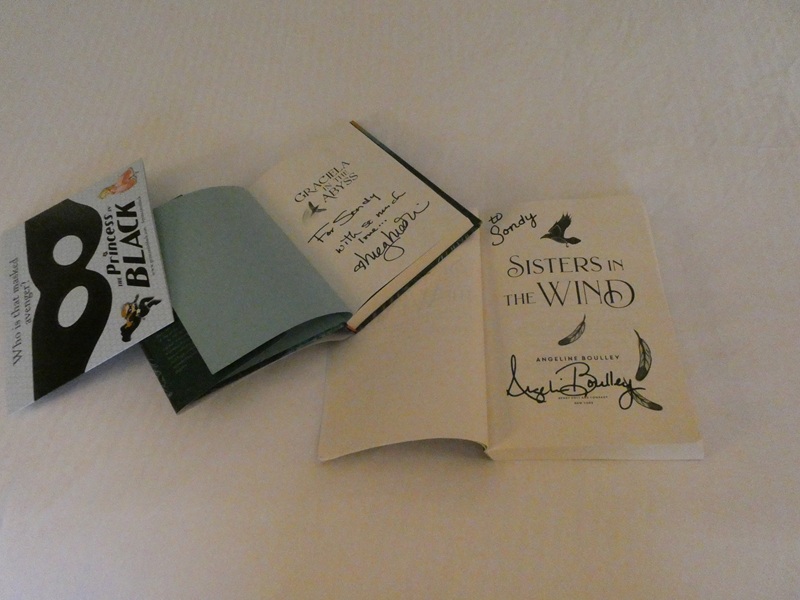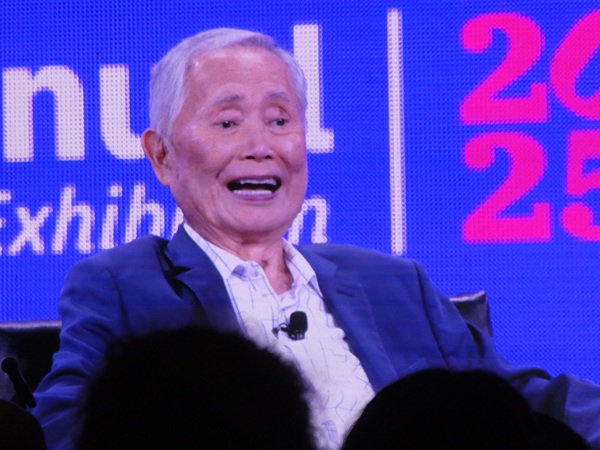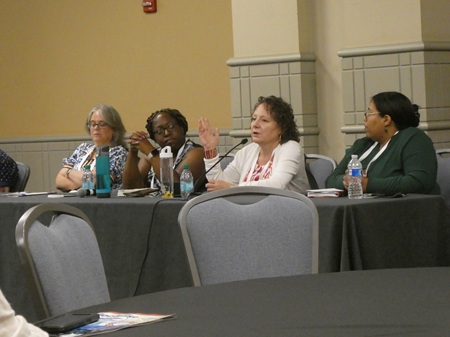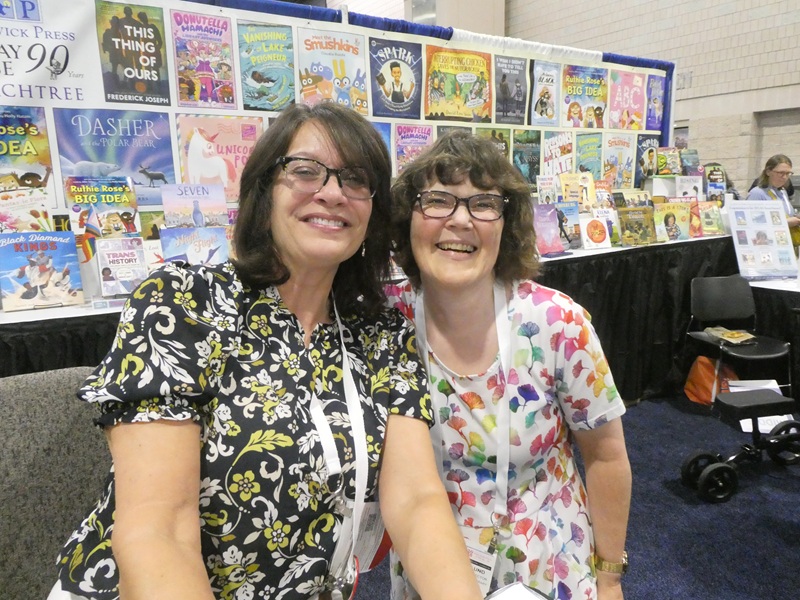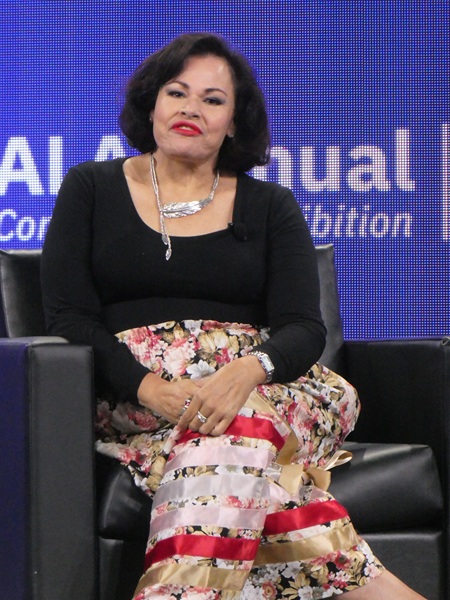Saturday, June 28, was the second day of the American Library Annual Conference 2025 in Philadelphia.
The hardest part of attending ALA is making choices about which sessions to attend. I started out Saturday with a session called “Dyslexic-Positive Libraries: 8 Practical Ways to Decrease Discrimination and Increase Equitable Access to Information.”
Extra interesting was a librarian I met while waiting for the program to start from Kenosha Public Library. She said their library has Dyslexia Kits in their Library of Things. That might be something our library could add. She also said they’ve started a program of twice a year having developmental screenings after story times. They’ve found many children who can use services by doing this, and the parents and caregivers appreciate the convenience.
At the program, I was hoping for information about the current buzzword, “Decodable” books – but it was more about making your library friendly for dyslexic patrons – and a reminder that if learning to read was easy and fun for you (and according to the on-the-spot survey, that was true of 45% of the librarians in the room) – then you’re coming from a place of privilege. Only 5-10% of the general population finds learning to read easy and fun.
So they talked about making your library welcoming and friendly for people with dyslexia. They talked about the progression of learning to read and reminded us that sometimes a child’s negativity about reading is a sign they need your allyship.
Some ideas included making a Celebrate Dyslexia display and mixing Hi-Lo books with others in displays to avoid book shame. Mainly it was about working with patrons coming into the library and not making assumptions about people’s reading abilities.
Next I went to the main auditorium to hear George Takei speak. He has a new graphic novel coming out, It Rhymes with Takei – about coming out as gay in his late sixties.
As a child, his family was imprisoned, and his parents were subjected to outrage. The government took their money and froze their bank account. He learned that being different incurred consequences – and his earliest acting job was acting straight.
He didn’t want to be a sissy, and he hid this difference. As a teen, his heartthrob was the actor Cap Hunter. When the world found out that Cap Hunter was gay, he lost his career. George internalized that lesson.
George attributes many conversations with his father to his thoughts about democracy. Democracy is dependent on people who understand that there’s a responsibility that citizens have. Democracy’s weakness is also in the people. Citizens have to be actively engaged to keep government working. Being engaged means being part of the community to make it better.
He served 11 years on the Metrorail board in Los Angeles, in the group that got the money for it.
Talking about his career as an actor, Asian Americans had been presented as unattractive stereotypes. But he got cast in positive roles. Gene Roddenberry wanted to make a statement about the world, presenting IDIC – Infinite Diversity in Infinite Combinations.
George talked with Gene about the Gay Liberation Movement. Gene had thought about taking Star Trek that direction, but after the backlash for the first inter-racial kiss on TV, he was afraid promoting Gay Liberation would make them go off the air.
Democracy is dependent on an informed public.
This line got a roar of response: “We have a Klingon in the White House.”
We’re all in a vitally important but dangerous position. Timing and urgency are important in dealing with issues. We the people will ultimately prevail.
Now we’re in a turbulence that democracies go through before becoming better.
After lunch, I made a tough choice and instead of going back to the main auditorium to hear Carla Hayden and Kwame Alexander, I attended a session called “The State of RA Today.” (RA is librarian-speak for Readers’ Advisory, recommending titles.)
I did download the notes from that, and it was mainly a reminder to diversify your suggestions and check up on yourself how well you’re doing that. Our job is to promote books they won’t find on their own. (They don’t need to know about James Patterson books.)
Oh! I remember why I don’t have notes from that session – my pen ran out of ink, and I didn’t have a spare. Annoying – but I have since downloaded the handouts from the ALA website.
Some things I like from those notes: RA is an autonomy-enabling service – empowering people to choose books they will enjoy and that will challenge them. If readers don’t know about the choices out there, they don’t have the power to choose them.
After this session, I got to the exhibits to catch Meg Medina signing her new book! (Meg Medina was the winner we chose when I was on the 2019 Newbery committee. As soon as Meg saw me, she gave me a big hug, and that for sure made my day.
Next up, and more sobering, I went to a session about current censorship cases, “Censorship in the Courts: Current Litigation throughout the United States.”
Mostly, librarians and libraries have been winning in the courts. But states are still trying to pass laws to curtail free speech. Those states and jurisdictions end up spending lots of money trying to defend their book bans in court. Book banning is expensive!
The session was sponsored by the ALA Office for Intellectual Freedom and the Freedom to Read Foundation, as well as a group called Lawyers for Libraries & Law for Librarians. It’s good to know there are resources for defending libraries and librarians if our jurisdiction’s freedom to read freely is challenged.
I finished my full day back at the main stage, listening to Angeline Boulley talk about her new book, Sisters in the Wind. (And I got an Advance Reader Copy signed afterward!)
She promised that we will learn more about Jamie! It’s about a character who doesn’t know she’s Native making her way back home.
The chaos of fire relates to teens whose lives are in upheaval.
This speaks to adoption and the foster care system so many Native children and teens have to go through. The Indian and Child Welfare Act works when it’s properly followed – but so often it isn’t.
Stories are how we really learn. She conveys factual information via story. Hoping for more positive stories than negative.
Humor is a survival care. We didn’t just inherit generational trauma – also laughter and love.
Hers is a community-based way of storytelling, bringing other characters forward. Never underestimate the power that one caring adult can have.
She recommends the website American Indians in Children’s Literature. And the books Lies My Teacher Told Me, Everything You Wanted to Know About Indians But Were Afraid to Ask, and An Indigenous History of the United States.
She got the idea for her first book at 18, and at 44 started writing. Got it published at 55. She decided she could live with writing a bad manuscript better than the regret of never having done it. Every book, she challenges herself.
